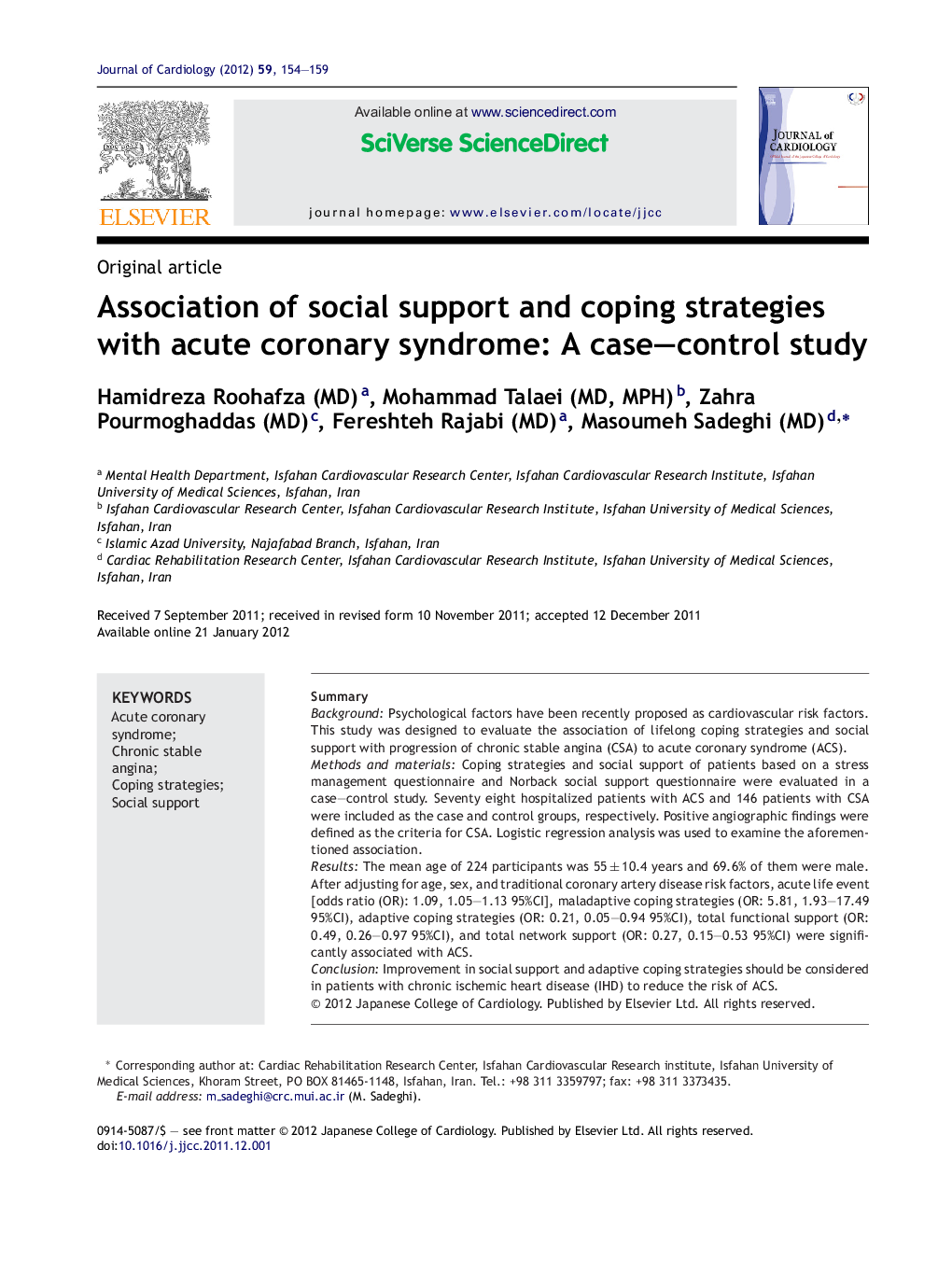| Article ID | Journal | Published Year | Pages | File Type |
|---|---|---|---|---|
| 2963236 | Journal of Cardiology | 2012 | 6 Pages |
SummaryBackgroundPsychological factors have been recently proposed as cardiovascular risk factors. This study was designed to evaluate the association of lifelong coping strategies and social support with progression of chronic stable angina (CSA) to acute coronary syndrome (ACS).Methods and materialsCoping strategies and social support of patients based on a stress management questionnaire and Norback social support questionnaire were evaluated in a case–control study. Seventy eight hospitalized patients with ACS and 146 patients with CSA were included as the case and control groups, respectively. Positive angiographic findings were defined as the criteria for CSA. Logistic regression analysis was used to examine the aforementioned association.ResultsThe mean age of 224 participants was 55 ± 10.4 years and 69.6% of them were male. After adjusting for age, sex, and traditional coronary artery disease risk factors, acute life event [odds ratio (OR): 1.09, 1.05–1.13 95%CI], maladaptive coping strategies (OR: 5.81, 1.93–17.49 95%CI), adaptive coping strategies (OR: 0.21, 0.05–0.94 95%CI), total functional support (OR: 0.49, 0.26–0.97 95%CI), and total network support (OR: 0.27, 0.15–0.53 95%CI) were significantly associated with ACS.ConclusionImprovement in social support and adaptive coping strategies should be considered in patients with chronic ischemic heart disease (IHD) to reduce the risk of ACS.
